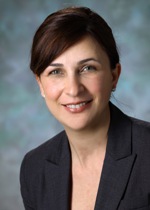Medical Education Research Scholar Track

Medical Education Research Scholar Track: A Discovery Experience for Students
Contact Us
Rebecca Evangelista, MD
Dept of Surgery
RXE7@gunet.georgetown.edu
Mary Furlong, MD
Dept of Pathology
furlonma@georgetown.edu
Sonya Malekzadeh, MD
Dept of Otolaryngology
malekzas@gunet.georgetown.edu
Jamie Padmore, DM, MSc
Medstar Health
Jsp35@georgetown.edu
Michael Plankey, PhD
Dept of Medicine
mwp23@georgetown.edu
Allison Selman-Lovell, MA
MedStar Health Research Institute
Allison.A.Selman-Lovell@medstar.net
H. Carrie Chen, MD, PhD
Dept of Pediatrics
hcc40@georgetown.edu
The Medical Education Research Scholar Track is a formal track within the School of Medicine curriculum for students interested in academic medicine and education scholarship. The track entails a comprehensive, longitudinal curriculum in medical education research that expands opportunities for students interested in medical education through a scholarly approach and is a compliment to the undergraduate medical curriculum at Georgetown University School of Medicine.
Purpose
The purpose of the Education Research Scholar Track is to expose students who are interested in academic medicine to the scholarship of teaching and learning in a medical/clinical environment. Because a scholarly approach is an effective way to address challenges in education and improve pedagogy, by providing experience with research methods in an education environment, our hope is that the students will not only become informed consumers of the medical education research literature, but also become contributors through their own research in this exciting field.
Rationale
The delivery of quality medical education, in both the classroom and the clinical setting, is essential for preparing physicians of the future. Innovative medical education methods are needed to provide exemplary patient care, and also to develop outstanding clinician educators who will engage in innovative research that will change paradigms and challenge the status quo.
Over the last three decades, research in medical education has contributed to our understanding of learning, teaching and assessment in medicine. There exists a growing body of knowledge about the process and outcome of medical education, derived primarily through evidence based principles. Engaging in scholarly research will prepare our future physicians for a life time of exemplary teaching and academic leadership.
A thoughtful, rigorous, evidence-based medical education curriculum leading to scholarly discovery improves the quality of future physicians’ education, teaching skills and methods, and ultimately improves patient care.
Research Track Objectives
At the completion of this scholarly track, students will
- Demonstrate foundational understanding of social science and educational research methods and the statistical strategies to support education research by conducting a scholarly research project focused on a challenge in medical education
- Be advocates in the protection of human subjects and know the IRB policies put in place to ensure their protection
- Read and analyze articles in primary journals on medical education
- Collaborate with peers and serve as mentors to others in the School of Medicine who are interested in medical education research.
- Formulate on their own a strong research question, hypothesis and methods consistent with rigorous research techniques in this area.
- Embrace their responsibility as future professionals in academic medicine by being not only consumers of education research but also contributors to the field
School of Medicine Competencies:
This research track further facilitates the medical student’s mastery of the following defined School of Medicine competencies:
- an understanding and knowledge of oneself, including the scope and limits of one’s knowledge, skills, and values.
- the ability to communicate and collaborate effectively with patients and colleagues.
- the ability to learn independently with a critical awareness of the scope and limits of one’s knowledge, skills, and values.
Education Research Scholar Curriculum and Requirements:
The Education Research Scholar Track will offer a varied approach combining education research grand rounds, self-study, interactive didactic sessions in a one-week intensive seminar, and a medical education scholarly project. Required include successful completion of the following Core Components:
Longitudinal Components:
- Maintain status as a “student in good academic standing”
- AAMC Medical Education Research Certificate (MERC):Students will earn the AAMC MERC certificate by completing six MERC sessions. Students in the track attend the MedStar Teaching Scholars Program sponsored by MedStar Health for this component of the program, which offers students six annual opportunities each of their four years.
Scholar Track Directors and Key Faculty

Jamie S. Padmore,
DM, MSc

Mary Furlong,
MD

Sonya Malekzadeh,
MD

Rebecca Evangelista,
MD

Michael Plankey,
PhD

Allison Selman-Lovell,
MA
Yearly Requirement Components
Year One
- Application to Medical Education Research Track
Summer Prior to Year Two
- IRB Training: Students will complete two components from the Collaborative Institutional Training Initiative (CITI) training:
- Basic Courses in the Protection of Human Research Subjects and
- Responsible Conduct of Research (RCR) Course with a Social, Education, Behavioral Research Focus
- One-Day Introduction to Educational Scholarship:
An early summer one-day seminar to introduce educational research concepts and assist students in developing a research question and hypothesis. This would allow students to jump start their ISP during the summer months should they so choose. - Intensive Week-long Medical Education Research Seminar:
Rising second year students participate in a week-long seminar, prior to start of second year, focused on the basics of Education research, which is geared toward jump-starting their final research project. Each student is paired with a faculty member who has experience in medical education research.
(Note: Current enrollment is held at 10 students but can be expanded to accommodate more students interested in the track.)
Year Two
- Medical Education Grand Rounds: Students attend a minimum of two of three Medical Education Grand Rounds sponsored by the Office of Student Research, Georgetown University School of Medicine
- Journal Club: Students attend and actively participate in a minimum of two medical education journal clubs during the year, which are offered monthly through the MedStar Teaching Scholars programs.
- Individual Project: Ongoing work on individual medical education research project. Submit proposal to IRB for approval.
- Quarterly Student/Mentor Meetings: Students will meet quarterly with their faculty mentor, and as the program grows, the M4 student mentor.
- Mandatory Annual Assessment of Progress: All students enrolled in the Education Research Track will check in annually with one of the course directors regarding progress.
Year Three
- Medical Education Grand Rounds: Students attend a minimum of two of three Medical Education Grand Rounds sponsored by the Office of Student Research, Georgetown University School of Medicine
- Journal Club: Students attend and actively participate in a minimum of two medical education journal clubs during the year, which are offered monthly through the MedStar Teaching Scholars programs.
- Individual Project: Ongoing work and/or complete individual medical education research project.
- Quarterly Student/Mentor Meetings: Students will meet quarterly with their faculty mentor, and as the program grows, the M4 student mentor.
- Mandatory Annual Assessment of Progress: All students enrolled in the Education Research Track will check in annually with one of the course directors regarding progress.
Year Four
- Medical Education Grand Rounds: Students attend a minimum of two of three Medical Education Grand Rounds sponsored by the Office of Student Research, Georgetown University School of Medicine
- Journal Club: Students attend and actively participate in a minimum of two medical education journal clubs during the year, which are offered monthly through the MedStar Teaching Scholars programs.
- Individual Project: Completion of individual medical education research project.
- Mentoring: Required student-to-student mentoring of year two students new to the scholar track. Quarterly Student/Mentor Meetings: Students will meet quarterly with their paired student.
- Mandatory 4-week Medical Education Research Elective (early spring): Required research elective focused on preparation of manuscript for publication. (Note: This requirement may be waived if the student is able to demonstrate adequate manuscript preparation.)
- Final Assessment/Debriefing: All students completing the Education Research Track will debrief with one of the course directors no later than March of year four to determine successful completion of the scholar track.
Getting Started
Students interested in becoming an Education Research Scholar are required to apply to the track in the spring semester of their first year. They apply through the joint application process for all tracks and summer research opportunities offered.
Students completing all components of the curriculum, including AAMC MERC Certification and manuscript submission, will be eligible to receive special distinction at Graduation as an Education Research Scholar.
Application for Summer Research/Scholarly Tracks
Assessment
Students will be assessed by their attendance at all required elements, active participation in group discussions, and by a final research paper on a topic relevant to medical education of the students’ choosing. A rubric will guide the manuscript development and final assessment. The course director will be available to guide students in developing a direction for this research paper. The Final Scholarly Research Project serves as a demonstration of competency in the program
Statistical References
Khan Academy
Clear, cogent statistics help videos. From the site: The Khan Academy is an organization on a mission. We’re a not-for-profit with the goal of changing education for the better by providing a free world-class education to anyone, anywhere. All of the site’s resources are available to anyone. It doesn’t matter if you are a student, teacher, home-schooler, principal, adult returning to the classroom after 20 years, or a friendly alien just trying to get a leg up in earthly biology. The Khan Academy’s materials and resources are available to you completely free of charge.
Free Online Statistics Tutorial/Tutoring
Very useful site for brushing up on statistics. This tutorial covers statistics, probability, and survey sampling. It is designed to get you productive as quickly and painlessly as possible. After completing the tutorial, you will be able to:
- Compute the probability that a particular event will occur.
- Use the right probability distribution (normal, t, binomial, etc.) for your analysis.
- Estimate population means and proportions, based on sample data.
- Determine margin of error and confidence levels.
- Test hypotheses about means and proportions.
- Choose the sample design that yields maximum precision for minimum cost.
Medical Education Journals
Journals (with impact factors) that publish Medical Education Research
